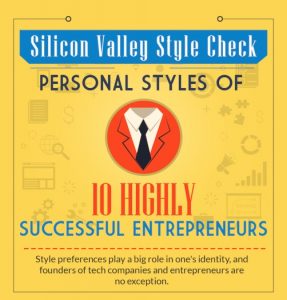Emailing is perhaps the most effective way to communicate in the workplace. It certainly is the quickest and easiest. However, emailing will only be successful if you treat it as a proper form of business communication.
Let’s take a moment to consider what will (and won’t) produce results when sending an email.
Academic vs. Business Writing = Length vs. Clarity
During all those years of learning, your educators probably failed to mention one very important piece of information: academic writing is unlike anything else you will ever be expected to compose.
The writing style you learn in the classroom rarely translates into the business world. The two forms of communication are vastly different.
Sadly, most academic writing assignments reward length over clarity.
It’s like looking at a baseball player’s statistics at the end of the year. Yes, he scored 10 home runs; but how many times did he make it to bat? If he only step up to the plate 10 times, the feat is much more impressive than if he faced the pitcher 1,000 times.
When composing an essay, most students seem to think the more they write the better. They increase the odds of at least one of their sentences hitting the mark.
After leaving the classroom, we tend to take that mindset into the office. The more you write, the better your chance of winning the boss’s favor.
David Silverman, an instructor of business writing at Drew University, challenges his students in this way. Can you come up with two or three words that could replace this entire sentence?
It is the opinion of the group assembled for the purpose of determining a probability of the likelihood of the meteorological-related results and outcome for the period encompassing the next working day that the odds of precipitation in the near-term are positive and reasonably expected.
Why waste your time, your boss’s time, and the email recipient’s time with lengthy, pretentious, redundant words?
Expect rain tomorrow. That’s all you need to say.
Kill These Words Now
George Orwell is commonly referred to as one of the most influential English writers of the 20th century. When he offers such sound logic as this, we can easily see why he was so popular:
- Never use a metaphor, simile, or other figure of speech which you are used to seeing in print.
- Never use a long word where a short one will do.
- If it is possible to cut a word out, always cut it out.
- Never use a foreign phrase, a scientific word, or a jargon word if you can think of an everyday English equivalent.
So in accordance with Mr. Orwell and everyone else who is tired of hearing meaningless nonsense in the workplace, kill these words now.
- As well as – Just say and!
- And/or – There is nothing in the English language that is more indecisive than and-slash-or. Unless you truly have no idea what you are trying to say, pick one.
- Value – We all know what this word technically means. However, over the years, it has almost come to mean the opposite in the world of business writing. Imagine: “Thank you for contributing to the conversation. We value your ideas.” It kind of sounds like you and your ideas are being mocked, doesn’t it?
- Ball park figures – Unless you are sitting with a group of good ol’ boys in overstuffed leather chairs, smoking cigars, just say estimate, ok?
- Takeaway – Takeaway has too meanings – either you are trying to be a pretentious business snob or you are hauling leftover food home from a restaurant. Rather than say something like, “what is the takeaway,” try “what have we learned?” Both expressions have the same amount of words – the second even has one less syllable. But the meaning is vastly different. Rather than referring to abstract thoughts in the document, you are turning the focus inward – becoming introspective and applying the topics discussed.
- At the end of the day – There are many, many overused clichés, but “at the end of the day,” might be the worst business phrase ever. In fact, if you Google the phrase, you’ll get nearly three billion hits.
- Individual – This is a flashy, five syllable way of distancing yourself from the actual people involved. “The individual responsible needs to be terminated immediately,” is very impersonal. In fact, you can almost forget there is a real person who will soon be without a job.
- All things being equal – All things will never be equal, so stop pretending like they could be.
- Going forward – “Going forward, all employees will take two 15 minute breaks instead of one 30 minute break.” Really? You didn’t want me to magically go back in time and change the duration of my morning coffee break?
Stop yourself from including these tacky, pretentious, redundant, useless phrases and your emails will be infinitely more successful. And if you still doubt whether your email writing is good enough you can always ask professionals to consult you.
Scripted, Contently, Bid4Papers, oDesk and many other online services of this kind might help your business with writing, distributing and managing professional and high-quality content; their experienced writers will share the secrets of email marketing for you to improve these skills and start writing better emails to your customers.
Don’t Beat Around the Bush
If your boss wanted to read a mystery or a suspense novel, he would have stopped at the drugstore on the way to work.
Say what you want to say. Now. Get to the point in the first line or two. In fact, start with the subject line of the email. Don’t leave the reader in suspense.
You Know What Happens When People Assume…
Don’t assume the reader knows what you are talking about. If there is a back story, provide it. No one is a mind reader – don’t expect your coworkers or employer to know what you mean. If there is an acronym or term you are referencing that isn’t widely understood by everyone involved, take a moment to explain it.
Likewise, don’t expect people to remember every detail of a previous conversation. If you sent an email last week that is a prerequisite to this communication, take a few minutes to refresh everyone’s memory.
If You Have an Opinion, Share It
How many times does this happen at work? You receive an email from someone and it says, “What do you think about this?” Below is a lengthy conversation that has gone back and forth between correspondents.
What is that person really saying? He or she is saying, “I don’t want to take the time to form an opinion or determine the most significant aspect, so I’ll just let you figure it out.”
Rather than make the reader sift through the nonsense and come up with an opinion, offer yours. Here is what’s happening. Here are the main points. I think we should take this action.
Know Your Purpose
What is the one thing that differentiates a business communication from a piece of literature?
A call to action.
The intention of a novel is to provide entertainment. The intention of a business communication is to spur action.
If there isn’t a call to action included in your email, what is the point of sending it?
Using email to communicate in the workplace is glorious – if you do it right. Just because it is the easiest and quickest way to communicate with someone doesn’t mean you can just toss your thoughts out randomly. Take the time to compose a proper business communication and you’ll find your emails are significantly more effective.
(419)





